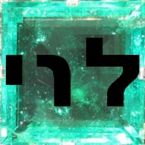Eleazar (Son Of Aaron)
 From Conservapedia
From Conservapedia Eleazar (Hebrew אֶלְעָזָ֨ר, God is helper) (2481 AM–fl. 1 Av 2552 AM–ca. 2580 AM) (1524 BC–fl. 12 August 1452 BC–ca. 1425-24 BC) was the third son of Aaron and the second High Priest of Israel.
Life and family[edit]
Eleazar was born in Egypt, son of Aaron and Elisheba. Concerning his own marriage, the Bible says only that he married "one of the daughters of Putiel." (Exodus 6:25 ) This Putiel is not identified further in the Bible, and could have been a Levite or a member of any other tribe of Israel. Eleazar's marriage likely took place before the Exodus, perhaps in 2512 AM (1493-92 BC), because his only named son, Phinehas, is listed before the description of the Ten Plagues.
Eleazar had two elder brothers, Nadab and Abihu, and one younger brother, Ithamar.
Career[edit]
Eleazar was consecrated as a priest, along with his three brothers, on 1 Zif 2410 AM (17 May 1490 BC), the day of the dedication of the Tabernacle. On the tenth day of their careers, Nadab and Abihu were incinerated when they offered holy incense using strange or common fire, instead of the perpetual fire from the Brass Altar. Thus Eleazar became the senior surviving son of Aaron.[1][2][3][4]
Eleazar also became the clan leader of the Levites during the forty-year wanderings in the wilderness. (Numbers 3:32 ) He camped with his father and younger brother, and with Moses, on the east side of the tabernacle courtyard. Whenever the Israelites broke camp, Eleazar helped prepare the furnishings of the Tabernacle for transport. He then personally supervised the Kohathites as they came to carry the furnishings away. He also had strict orders not to permit any of the Kohathites to try to look at the "most holy objects," even for a moment, because the penalty for that sort of "idle sight-seeing" was death. (Numbers 4:17-20 ) Eleazar also had charge of the four sacerdotal substances: the holy incense, the fuel oil for the Lampstand, the oil of unction for the Tabernacle, and the continual grain offering.[1][2] (Numbers 4:16 )
Eleazar also was in charge of a curious cleansing ritual involving a red heifer.[2][4] (Numbers 19:1-10 ) The heifer needed to be red, without spot, and never yoked. Following its sacrifice, Eleazar was to sprinkle some of its blood with his finger at the entrance to the Tabernacle tent seven times, and then consider himself ritually unclean until the evening. The heifer would then be burned with cedar wood, hyssop, and scarlet material, and a clean man would gather the ashes and deposit them in a clean place. The Israelites would mix these ashes with water for use in purification. The man gathering the ashes would wash his clothes and consider himself unclean until the evening.[5]
When Korah made his infamous mutiny against Moses and Aaron, Eleazar was ordered to melt down the still-hot censers used by Korah's confederates, beat the metal into thin plates, and nail them to the sides of the Brass Altar, as a reminder to the people of Israel that none but the priests were to offer holy incense to God.[2]
In the last year before the invasion of Canaan, Eleazar accompanied Moses and Aaron to the top of Mount Hor. There Moses divested Aaron of his sacerdotal garments and put them on Eleazar. Shortly after this, Aaron died, and Eleazar succeeded Aaron on that day as high priest of Israel. He would hold that position for the rest of his life.[1][2][3] He also assisted Moses, and later Joshua, in governing the people of Israel and deciding certain inheritance cases.[2][4]
Death and legacy[edit]
Eleazar died in the new land, presumably in the same year as the death of Joshua. Flavius Josephus estimated that Joshua died twenty years after the division of the land that followed the seven years of warfare that the Israelites waged to take possession of that land, and that Eleazar died in that same year. His son Phinehas succeeded him as high priest.[1][2][3][6][7] (Joshua 24:33 )
The family of Eleazar held the high priesthood until about 2842 AM (1162 BC), when Eli, of the line of Ithamar, became judge and high priest.[8] Solomon restored the high priesthood to the line of Eleazar during his reign,[2][4] with the investiture of Zadok as high priest.[3][4]
References[edit]
- ↑ 1.0 1.1 1.2 1.3 Hirsch EG, König E, Krauss S, and Gottheil R, "Eleazar," The Jewish Encyclopedia, n.d. Accessed December 10, 2008.
- ↑ 2.0 2.1 2.2 2.3 2.4 2.5 2.6 2.7 Duffy, Daniel. "Eleazar." The Catholic Encyclopedia. Vol. 5. New York: Robert Appleton Company, 1909. Accessed December 10, 2008.
- ↑ 3.0 3.1 3.2 3.3 "Eleazar," Net.Bible.org, 2005. Accessed December 10, 2008.
- ↑ 4.0 4.1 4.2 4.3 4.4 Blank, Wayne, "Bible Study: Eleazar," Daily Bible Study, n.d. Accessed December 10, 2008.
- ↑ This red-heifer ritual has gained renewed attention in modern times. Certain Jews, hoping to rebuild the Temple of Jerusalem, have sought to find and isolate an unblemished red heifer and perform this same ritual in order to purify the new Temple.
- ↑ Josephus, Antiquities of the Jews, 5.1 28-29
- ↑ Jones, Floyd N., The Chronology of the Old Testament, Green Forest, AR: Master Books, 2004, p. 90
- ↑ Jones, op. cit., p. 279
See also[edit]
| ||||||||||||||||||||||
| |||||||||||||||||
Categories: [Biblical Persons] [Old Testament] [Jewish People]
↧ Download as ZWI file | Last modified: 02/24/2023 20:19:58 | 73 views
☰ Source: https://www.conservapedia.com/Eleazar_(son_of_Aaron) | License: CC BY-SA 3.0
 ZWI signed:
ZWI signed:

 KSF
KSF